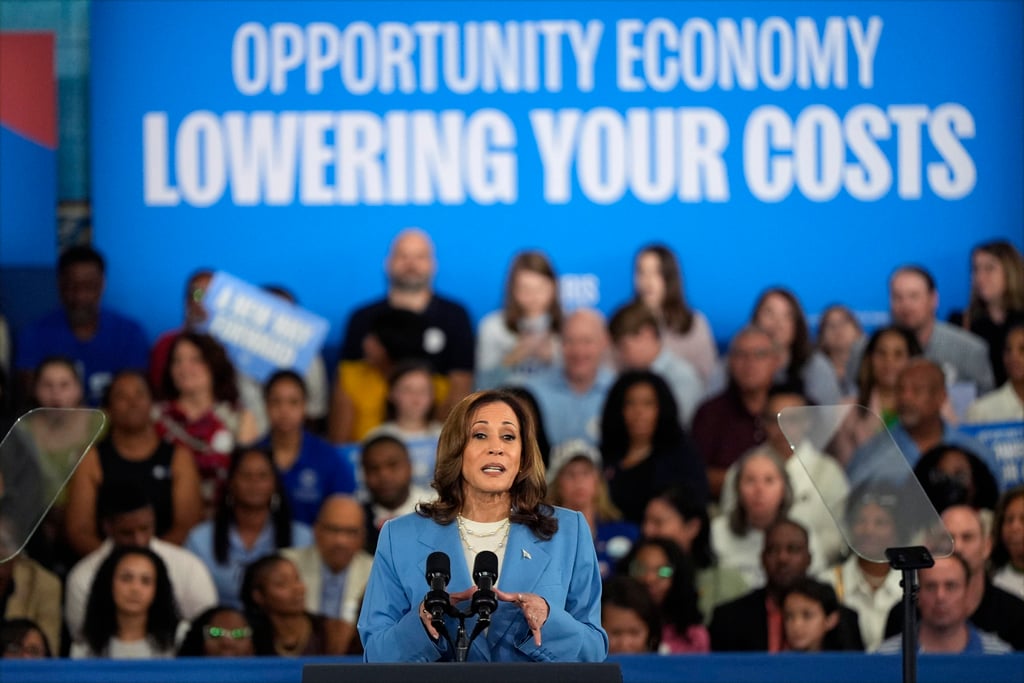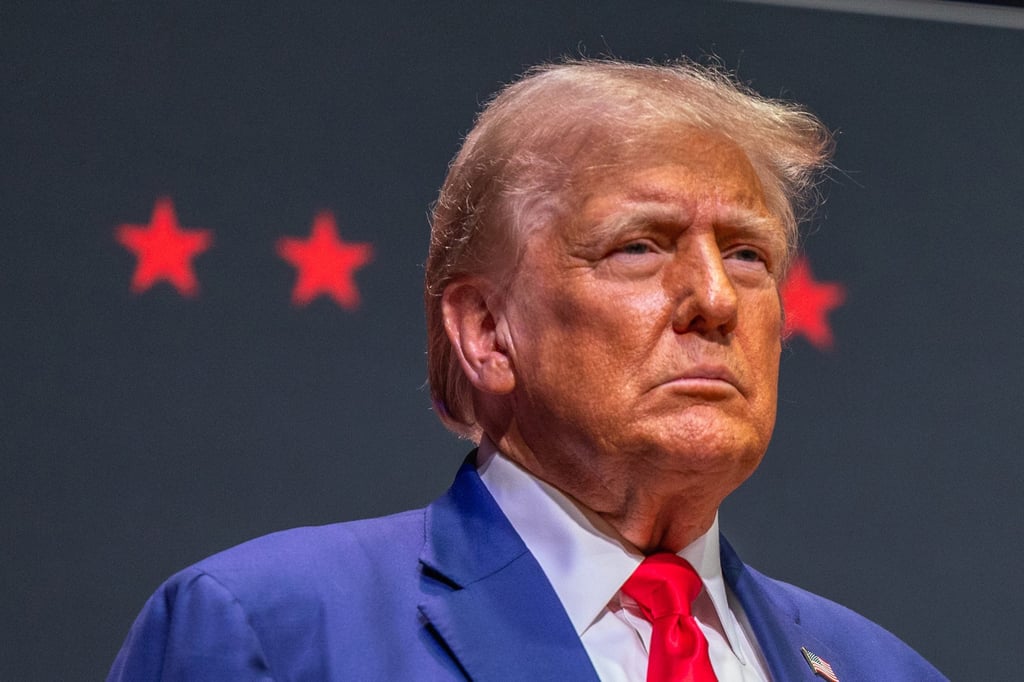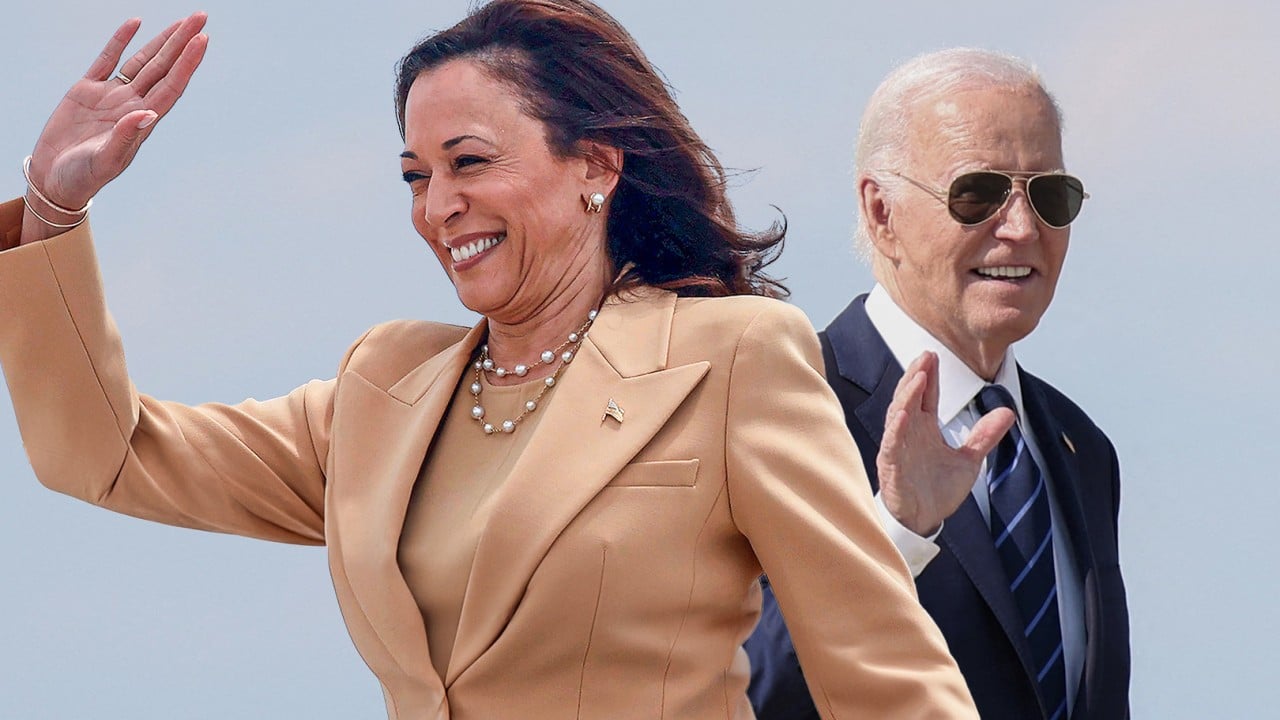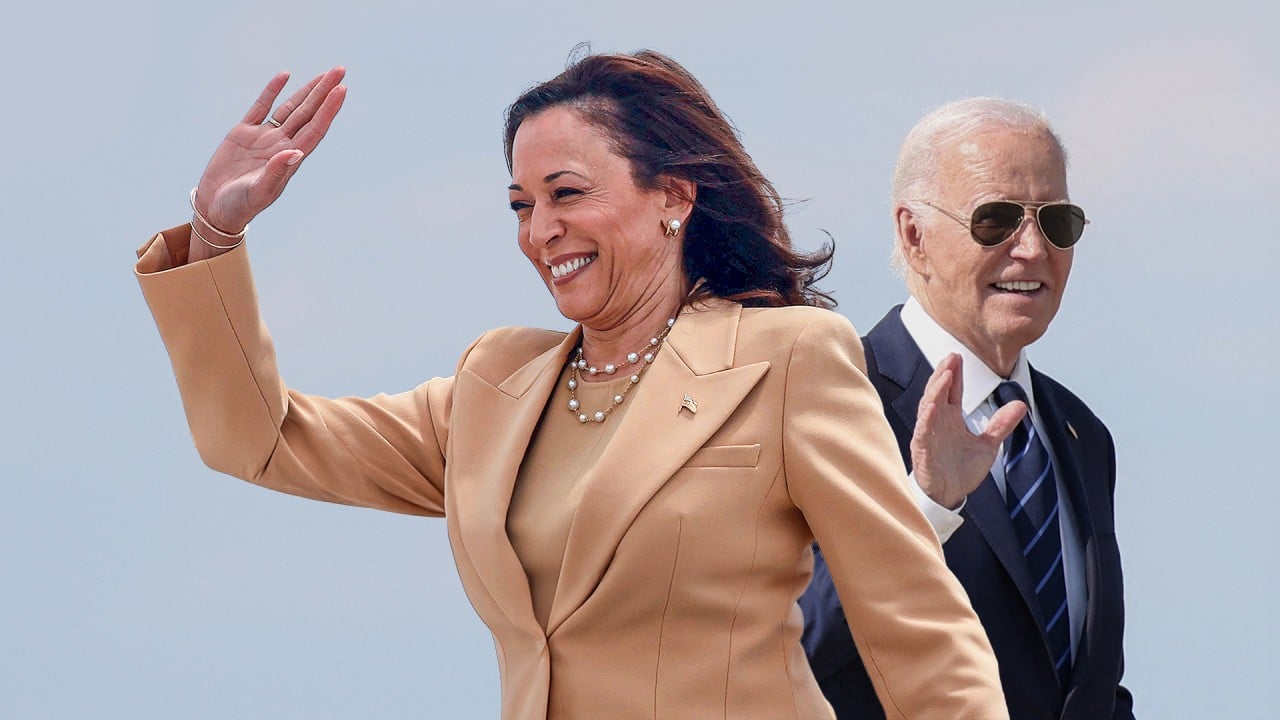US Vice-President Kamala Harris called for expanded US employment, increased opportunities for Americans and more secure supply chains on Friday in her first major policy speech since replacing President Joe Biden as the Democratic Party’s presidential candidate.
“As president, I will be laser focused on creating opportunities for the middle class that advance their economic security, stability and dignity,” she said to an enthusiastic crowd of about 300 at a community college in the contested state of North Carolina.
“Together, we will build what I call an opportunity economy … an economy where everyone can compete and have a real chance to succeed.”
With 80 days left before the November election, her 28-minute speech expanded on some policies promoted by Biden, including a plan to build 3 million new homes, enact child tax credits of up to US$3,600 annually and ban “price gouging” by food companies.
Although she made no explicit references to China, she drew a contrast with import restrictions proposed by her Republican opponent, Donald Trump. The former president has threatened to enact tariffs of 60 per cent on all Chinese imports and up to 200 per cent on all imported vehicles, including those from China.
“He wants to impose what is, in effect, a national sales tax on everyday products and basic necessities that we import from other countries that will devastate Americans,” she said.
“Economists have done the math. Donald Trump’s plan would cost a typical family US$3,900 a year. At this moment when everyday prices are too high, he will make them even higher.”
Harris told supporters that the US economy was the strongest in the world and supply chains were improving after the pandemic, but that prices were still too high – even as she sought to contrast her approach with Trump’s record of enacting policies favourable to wealthy Americans.
“He plans to give billionaires massive tax cuts year after year, and he plans to cut corporate taxes by over a trillion dollars, even as they pull in record profits,” she said. “If you want to know who someone cares about, look who they fight for.”
Her focus on jobs, small businesses and trade unions are themes the Biden administration has drawn on – and which she is expected to continue – to justify major spending bills, technology and investment restrictions aimed at countering China’s economic rise.
In the final months of the campaign against Trump, there is little political upside to a detailed discussion of trade policy, which could give Trump more fodder to use against her and highlight divisions within her Democratic base.
That said, China is expected to become a significant focus during three debates – two presidential and one vice-presidential – starting on September 10.

Harris’s economic priorities also reflect the fine political line she is walking, analysts said.
Even as she seeks to edge away from or deflect more contested parts of the Biden administration legacy – including inflation, illegal migration across the US-Mexico border and a progressive agenda – she cannot afford to disown policies that she has been a part of.
Among the Biden administration’s signature achievements she would be expected to build on are the US$280 billion Chips and Science Act, passed in July 2022, that aims to bolster supply chain resilience and counter China’s rapid advances in chips and other technologies of potential use in its military.
Complementing that is the US$1.2 trillion Infrastructure Investment and Jobs Act and the US$750 billion Inflation Reduction Act, signed into law in November 2021 and August 2022 respectively.
These measures aim to rebuild crumbling US roads, bridges and mass transit; fund electrical vehicle chargers, clean energy transmission and internet broadband; and reduce greenhouse gas emissions while increasing US energy security, in part to give the US a stronger base to counter China.
Biden ran for office pledging to review Trump’s 2017-2021 China policies – marked by a trade war and punitive tariffs – and focus on a more selective “small yard, high fence” approach.
Once in office, however, his administration kept most Trump-era import tariffs and significantly expanded export restrictions on high-end semiconductors and other advanced technology.
Economists have questioned the efficacy of the tariff proposals and supply chain restrictions, noting that many Chinese goods and components are re-routed through Vietnam and other countries.
America’s trade deficit with China has only decreased slightly, to US$279 billion from US$300 billion, between 2019 and 2023.

Neither Harris nor Trump are talking about rolling back China tariffs in an era when tougher policies against Beijing are one of the few areas of agreement in deeply divided Washington, said Adam Posen, president of the Peterson Institute for International Economics.
“In terms of economics and trade and investment policy, I think [there’s] almost no difference,” said Posen, an adviser to the US Congressional Budget Office from 2005 to 2019.
“We’re almost certainly going to get additional punitive tariffs on China, blocking huge amounts of trade with either side.”
Harris was thrust into the race less than four weeks ago after Biden, 81, stumbled badly during his late June debate with Trump, 78. Since then, the competition has been upended, giving Democrats renewed momentum and putting Trump’s age in the spotlight.
While the populist proposals outlined by Harris on Friday may play well with voters, many of her – and Trump’s – economic priorities would need to secure majority support in the US Congress.
In a meandering “economy” speech on Wednesday also delivered in North Carolina, Trump blamed Harris for inflation before veering off into a discussion on immigration and other favourite topics.
“They wanted to do a speech on the economy,” Trump told the crowd, apparently referring to his campaign advisers.
“They say it’s the most important subject,” he added. “I’m not sure it is.”



